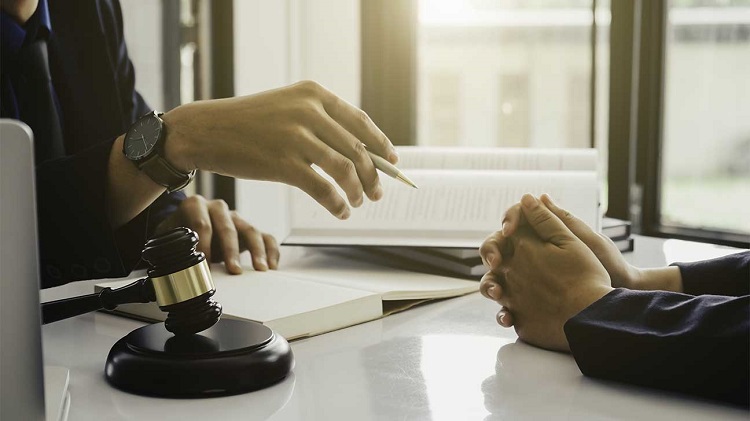Personal injury cases involve people who have experienced harm or injury as a result of the carelessness or malicious behavior of another person. These cases can be difficult to resolve, requiring a thorough investigation and the ability to prove liability. Personal injury lawyers play a major role in helping victims, who seek justice and compensation for their accident injury. In this article, we will explore the process of how personal injury lawyers prove liability in injury cases.

Gathering Evidence:
Personal injury lawyers begin by gathering relevant evidence for the case in order to establish liability. This includes looking at and reviewing medical records, accident reports, incident photographs, videos, witness statements, and any other relevant documents. Lawyers work diligently to ensure that they have a comprehensive understanding of the incident and the extent of the injuries suffered by their clients.
Identifying Negligence:
One of the primary tasks of personal injury lawyers is to determine whether negligence occurred. A failure to take reasonable care that results in causing injury to another person is referred to as negligence. Lawyers evaluate the circumstances of the case to identify if the defendant had a duty of care, breached that duty, and caused the injury. They must establish that the defendant’s actions or lack thereof directly contributed to the client’s injuries.
Expert Witness Testimony:
In complex injury cases, personal injury lawyers often rely on expert witnesses to establish liability. These professionals have specific knowledge and expertise in their industries, whether they are medical professionals, accident reconstruction specialists, or engineers. Also, they provide professional opinions and analysis to support the lawyer’s arguments and help the jury or judge to understand the technical aspects of the case.
Proving Causation:
Causation is a major element in personal injury cases. A lawyer must demonstrate a direct link between the defendant’s carelessness and the client’s injuries. They prove that the injuries were a direct result of the defendant’s actions or omissions using medical records, expert testimonies, and other evidence. This requires careful analysis and presentation of evidence to prove causation beyond a reasonable doubt.
Comparative Negligence:
In some rare cases, the defendant may argue that the injured party was partially responsible for their injuries. Well-experienced personal injury lawyers are skilled at handling those situations and they will gather proper evidence to prove the defendant’s negligence is wrong. Also, they aim to minimize any reduction in compensation that could result from comparative negligence claims.
Conclusion:
Liability proof in personal injury cases is a difficult task that requires the knowledge of personal injury lawyers. These attorneys work hard to prove negligence, causation, and liability on the part of the responsible party by thorough investigation, evidence collection, and utilizing expert witnesses. Their main goal is to seek justice and obtain fair compensation for their injured clients, ensuring that they can recover and move forward with their lives.
Read More Here:
Why You Need a Personal Injury Lawyer
Key Considerations for Choosing the Right Personal Injury Lawyer
What is the Role of a Personal Injury Lawyer in Seeking Compensation
Different Types of Personal Injury Cases Handled by Lawyers
How a Personal Injury Lawyer Can Help in Understanding the Legal Process
What are the Benefits of Hiring a Personal Injury Lawyer
What are the Top Traits to Look for in a Personal Injury Lawyer
When is the Correct Time to Hire a Personal Injury Lawyer
How a Personal Injury Lawyer Can Assist in Negotiating with Insurance Companies
What You Should Do After an Accident
How to File a Personal Injury Lawsuit with the Help of an Accident Lawyer
How an Accident Lawyer Guides You Through Your Case
What are the Strategies Employed by Skilled Accident Lawyers
Why a Personal Injury Lawyer is Essential in Uninsured Motorist Accidents
